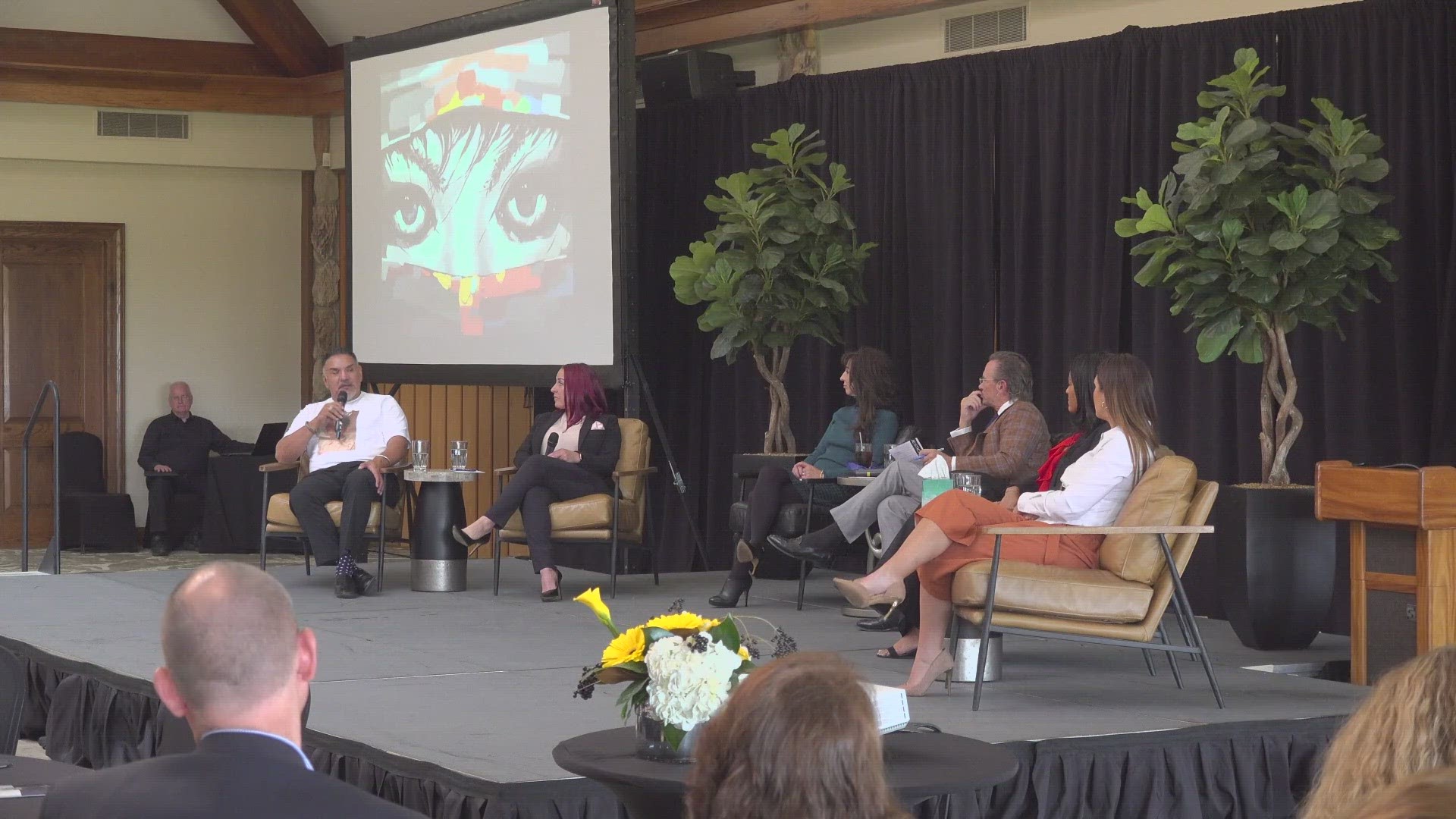MIDLAND, Texas — Human trafficking is perhaps one of the most intricate and complex crimes in the book.
It affects thousands of people across the globe and especially here in the Permian Basin.
Reflection Ministries held a human trafficking summit Wednesday to raise awareness and provide the community perspectives from people who really experienced trafficking.
“[We're] really trying to have survivors tell real stories and understand the multi-levelled intense trauma that embraces this horrific crime and how do we move through it," Lisa Bownds, the CEO and founder of Reflection Ministries, said. "I think hearing from them directly will impact the community on what do they do next.”
This is why the speakers were gathered Wednesday. To tell the community how trafficking can affect anyone, no matter if they are male or female and no matter how old or young they are.
Rachel Thomas was one of the speakers at the event and a victim of sex trafficking, who knows first hand how important it is to get the word out.
“It’s important to be able to put a face on human trafficking so that it’s not a news article, it’s not someone we think of as 'them' over there," Thomas said. "My story in particular really impresses upon people because it could be their daughter also, coming from a good home as a college student. So even parents that are doing a wonderful job, they still need to be aware that human trafficking, they are not immune to it.”
According to Reflection Ministries, Texas is ranked #2 in the nation for trafficking, while the Permian Basin is the #5 region in the country for trafficking.
The signs for someone who is being trafficked aren’t always right out there in the open for people to see.
“Unfortunately there is interfamilial, which is where parents are selling children and that’s always going to be behind closed doors," Thomas said. "Then of course there is what we call street-based prostitution, which often times is human trafficking."
That’s the main goal of hearing the speakers story.
Let victims know they are heard and not alone while finding new ways to tackle the problem.
“I think that’s what's really important, is that making sure we identify victims, what do they look like in our schools, what do we see when they roll into our emergency rooms and what are we looking at even in our churches," Bownds said. "Then also how do we identify buyers and traffickers and then what's our next step to interview those individuals that are in our jails and how do we provide resources for healing."

